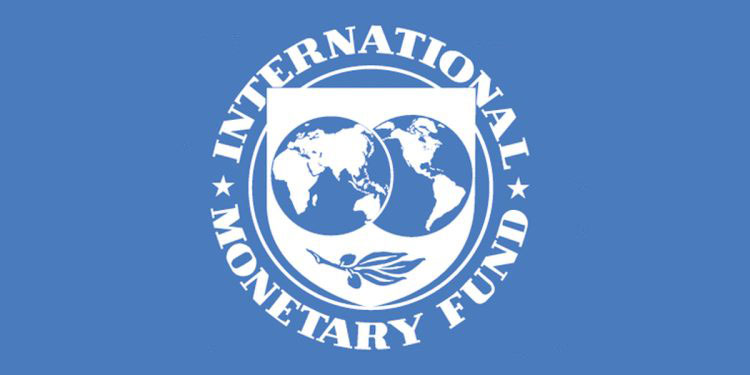2025-01-10
Business
IMF staff team concludes visit to Sri Lanka

An International Monetary Fund (IMF) team led by Evan Papageorgiou visited Colombo from April 3 to 11, 2025. After constructive discussions in Colombo, Mr. Papageorgiou issued the following statement:
“Sri Lanka’s ambitious reform agenda supported by the IMF Extended Fund Facility (EFF) continues to deliver commendable outcomes. The post-crisis growth rebound of 5 percent in 2024 is impressive. Inflation declined considerably in recent quarters and has fallen to ‑2.6 percent at end-March 2025. Gross official reserves increased to US$6.5 billion at end-March 2025 with sizeable foreign exchange purchases by the central bank. Substantial fiscal reforms have strengthened public finances.
“The recent external shock and evolving developments are creating uncertainty for the Sri Lankan economy, which is still recovering from its own economic crisis. More time is needed to assess the impact of the global shock and how its implications for Sri Lanka can be addressed within the contours of its IMF-supported program.
“The government’s sustained commitment to program objectives is ensuring policy continuity and program implementation remains strong. Going forward, sustaining the reform momentum is critical to safeguard the hard-won gains of the program and put the economy on a path toward lasting macroeconomic stability and higher inclusive growth.
“Against increased global uncertainty, sustained revenue mobilization efforts and prudent budget execution in line with Budget 2025 are critical to preserve the limited fiscal space. Boosting tax compliance, including by reinstating an efficient and timely VAT refund mechanism, will help contribute to revenue gains without resorting to additional tax policy measures. Avoiding new tax exemptions will help reduce fiscal revenue leakages, corruption risks and build much needed fiscal buffers, including for social spending to support Sri Lanka’s most vulnerable. Restoring cost recovery in electricity pricing will help minimize fiscal risks arising from the electricity state-owned enterprise.
“The government has an important responsibility to protect the poor and vulnerable at this uncertain time. It is important to redouble efforts to improve targeting, adequacy, and coverage of social safety nets. Fiscal support needs to be well-targeted, time-bound, and within the existing budget envelope.
“While inflation remains low, continued monitoring is warranted to ensure sustained price stability and support macroeconomic stability. Against ongoing global uncertainty, it remains important to continue rebuilding external buffers through reserves accumulation.
“Discussions are ongoing, and the authorities are encouraged to continue to make progress on restoring cost-recovery electricity pricing, strengthening the tax exemptions framework, and other important structural reforms.
“The IMF team held meetings with His Excellency President and Finance Minister Anura Kumara Dissanayake, Honorable Prime Minister Dr. Harini Amarasuriya ; Honorable Labor Minister and Deputy Minister of Economic Development Prof. Anil Jayantha Fernando, Honorable Deputy Minister of Finance and Planning Dr. Harshana Suriyapperuma, Central Bank of Sri Lanka Governor Dr. P. Nandalal Weerasinghe, Secretary to the Treasury Mr. K M Mahinda Siriwardana, Senior Economic Advisor to the President Duminda Hulangamuwa, and other senior government and CBSL officials. The team also met with parliamentarians, representatives from the private sector, civil society organizations, and development partners.
“We would like to thank the authorities for the excellent collaboration during the mission. Discussions are continuing with the goal of reaching staff-level agreement in the near term to pave the way for the timely completion of the fourth review. We reaffirm our commitment to support Sri Lanka at this uncertain time.”
News
New Year dawns at the auspicious time of 03.21 a.m. tomorrow (14).

The Sinhala and Tamil New Year will dawn at the auspicious time of 03.21 a.m. tomorrow (14th Monday).
The auspicious time to light the hearth and prepare the first meal is at 0404 am on Monday (14) facing South.
The auspicious hour to commence work, perform the first transactions and partaking of the first meal is at 0644 am facing South dressed in white coloured clothes.
Latest News
Argentina secures $42bn from IMF, others as it lifts currency controls

Argentina has clinched $42bn in medium-term funding from the International Monetary Fund (IMF) and two other financial institutions as it announced it is abandoning most of its tight currency controls.
The IMF’s executive board late on Friday approved a $20bn bailout package that will be doled out over the next four years, with an immediate disbursement of $12bn and another $2bn available after a review planned for June.
The World Bank also announced a $12bn support package for Argentina, and the Inter-American Development Bank (IDB) said it will provide up to $10bn in financing for the public and private sectors. Both are three-year plans.
President Javier Milei announced on Friday that he will – starting on Monday – lift most of Argentina’s strict capital and currency controls as part of agreements that secured the huge funding deals.
“Today we are breaking the cycle of disillusionment and disenchantment and are beginning to move forward for the first time,” he said on national television while flanked by his ministers. “We have eliminated the exchange rate controls on the Argentine economy for good.”
The capital controls, known in Argentina as “el cepo” or “the clamp”, were imposed by a previous administration in 2019 with the aim of preventing further financial downfall and capital flight that the country has been dealing with for years.
The controls clamped down on individuals’ ability to buy US dollars, giving rise to a black market that is widely used by citizens. They also restricted companies’ access to dollars, discouraging foreign investment that Milei needs.
The Argentinian central bank now aims to allow the peso to trade within a so-called currency band instead of firmly pegging the beleaguered currency to the dollar.
The band ranges from 1,000 to 1,400 pesos per greenback and will expand by 1 percent each month, according to the central bank.
In announcing its latest support package, the IMF said the programme is “expected to catalyse further official financing from multilateral sources” and “seeks to facilitate a timely return to international capital markets”.
“The program supports a path toward entrenching macroeconomic stability, strengthening external sustainability, and laying the foundation for stronger and more resilient growth,” it said, adding that its key pillars include “maintaining a strong fiscal anchor, transitioning towards a more robust monetary and FX regime”.
The organisation praised Argentinian authorities’ new commitment to a zero-deficit budget target, which has delivered the first fiscal surplus in almost two decades.
But to achieve the surplus, Milei has fired tens of thousands of state workers, with his overhauls hitting the population hard, including by raising poverty levels.
[Aljazeera]
-

 Business7 days ago
Business7 days agoColombo Coffee wins coveted management awards
-

 News2 days ago
News2 days agoSuspect injured in police shooting hospitalised
-

 Features3 days ago
Features3 days agoRobbers and Wreckers
-

 Features5 days ago
Features5 days agoSri Lanka’s Foreign Policy amid Geopolitical Transformations: 1990-2024 – Part III
-

 Midweek Review5 days ago
Midweek Review5 days agoInequality is killing the Middle Class
-

 Features7 days ago
Features7 days agoSri Lanka’s Foreign Policy amid Geopolitical Transformations: 1990-2024 – Part I
-

 Business2 days ago
Business2 days agoSanjiv Hulugalle appointed CEO and General Manager of Cinnamon Life at City of Dreams Sri Lanka
-

 Features6 days ago
Features6 days agoA brighter future …












